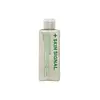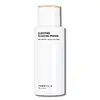What's inside
What's inside
 Key Ingredients
Key Ingredients

 Benefits
Benefits

 Concerns
Concerns

No concerns
 Ingredients Side-by-side
Ingredients Side-by-side

Zea Mays Starch
AbsorbentSodium Cocoyl Isethionate
CleansingSodium Lauroyl Glutamate
Montmorillonite
AbsorbentGluconolactone
Skin ConditioningArtemisia Caruifolia Powder
AbrasiveDiglycerin
HumectantDipotassium Glycyrrhizate
HumectantSodium Hyaluronate
HumectantOenothera Biennis Oil
EmollientPapain
Skin ConditioningGlucose
HumectantGlutathione
Tranexamic Acid
AstringentMadecassoside
AntioxidantDextrin
AbsorbentAsiaticoside
AntioxidantIngredients Explained
These ingredients are found in both products.
Ingredients higher up in an ingredient list are typically present in a larger amount.
Diglycerin is a humectant. It is derived from glycerin, which is naturally found in your skin.
As a humectant, it helps draw moisture to the skin from the air.
Papain is an enzyme found naturally in the papaya plant's leaves, fruit, and roots. It has antimicrobial, soothing, and wound healing properties.
Glycine and Vitamin A are naturally found in papain.
While papain is often touted as skin-lightening, further studies are needed to prove this. However, papain has been shown to help soothe acne-inflammation.
Papain belongs to a class of enzymes called proteolytic enzymes. These enzymes break down peptides and amino acids.
Some studies found papain to be a potential skin sensitizer and allergen. Those with latex allergies might also be allergic to papaya.
Learn more about PapainSodium cocoyl isethionate is a natural ingredient from coconut oil. It is an ultra gentle cleanser that gives a nice foam without drying the skin or impacting the skin barrier.
The amount of foam created depends on the amount of sodium cocoyl isethionate used in the product.
This ingredient also helps improve the spreadability of a product.
Learn more about Sodium Cocoyl IsethionateSodium Lauroyl Glutamate is the sodium salt from the lauric acid of glutamic acid.
It is a surfactant and helps cleanse the skin. Surfactants gather oil, dirt, and other pollutants from your skin so they may be washed away easily.
Zea Mays Starch is starch made from corn. You might know this as cornstarch . It is used to thicken a product. It can replace talc as an absorbent.
The pH of cornstarch is 5.92.
Cornstarch is a common food ingredient used to thicken soups or to make corn syrup.
Learn more about Zea Mays Starch